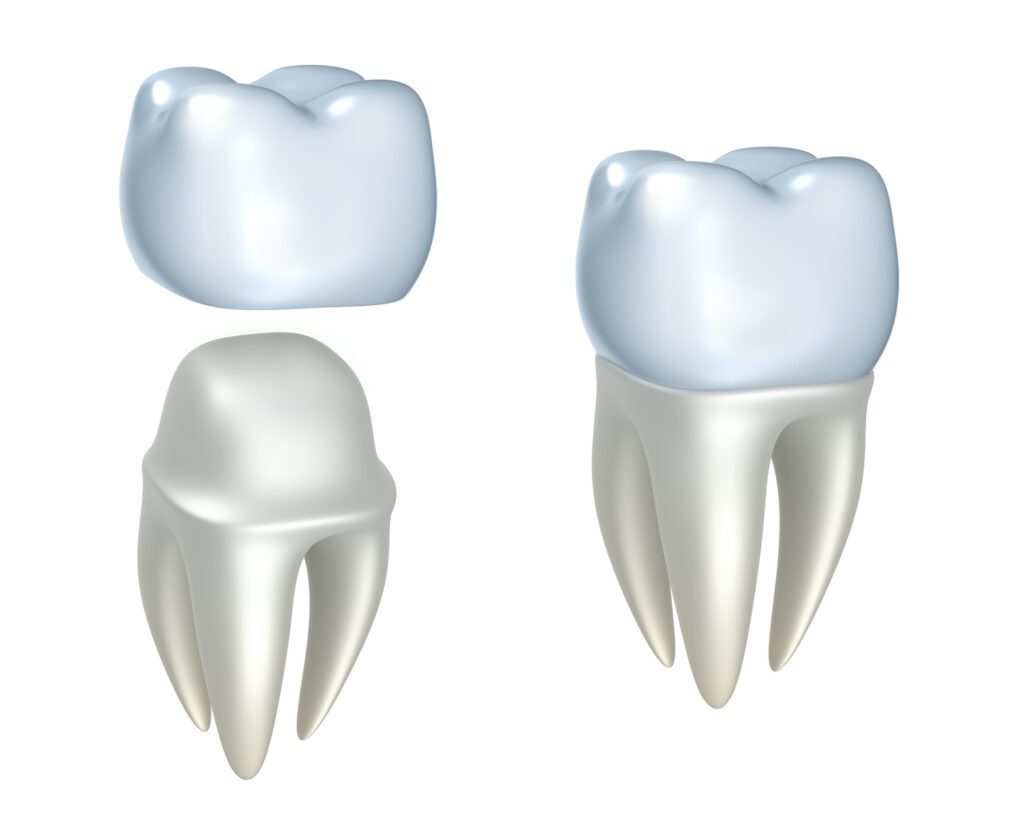Dental crowns, an integral part of restorative dentistry, are often recommended by dentists to patients with damaged and discolored teeth. In Payette, ID, for instance, dental professionals regularly employ this form of treatment to not only restore the appearance of teeth but also protect them from further wear and tear.

Understanding Dental Crowns
A dental crown is essentially a cap that covers a tooth to help restore it to its normal shape and size. This structure could significantly enhance the strength of your tooth while improving its overall appearance. A crown proves particularly beneficial when there isn’t enough tooth remaining to hold a large filling. It’s frequently used in conjunction with other treatments, such as bridges or implants.
The Role of Dental Crowns in Restoring Teeth Health
The benefits offered by dental crowns extend beyond cosmetic enhancements; they play an essential role in maintaining oral health, too. They strengthen weak teeth, restoring their original size and shape, thereby enhancing functionality and aesthetics. Furthermore, these crowns serve as protective shields for vulnerable teeth against potential breakage or damage caused by decay. They also act as effective coverings for dental implants or fillings that need additional support.
The Process Involved in Getting a Dental Crown
When you undergo the process of receiving a dental crown, any damaged or decayed structure on your tooth will be removed first to create an appropriate foundation for placing the crown. You’ll then receive a temporary dental crown while waiting for your custom permanent restoration, which is usually secured and polished, subsequently ensuring it resembles natural teeth both functionally and aesthetically. This simple yet efficient solution allows patients with cracked, chipped, or damaged teeth not just improved appearances but enhanced biting and chewing capabilities as well, making everyday tasks easier.
Frequently Asked Questions About Dental Crowns
You may wonder about the longevity of dental crowns. With proper care, they can last up to 30 years. During the interim period, before your permanent restoration is ready, you’ll have a temporary crown in place. It’s advisable during this time to avoid sticky and chewy foods that might dislodge the crown. To ensure comfort during the procedure, your dentist will numb the tooth or teeth receiving dental crowns thereby minimizing any potential discomfort. Post-procedure sensitivity may occur but it’s usually minimal and short-lived.
Scheduling Your Dental Crown Appointment
In essence, dental crowns are an effective way to protect and restore your smile while enhancing overall oral health. If you’re considering restorative dentistry treatments for lost or damaged teeth, scheduling an appointment with a professional like Dr. Hyder at Payette Dental could be beneficial. The team there is committed to providing comfortable professional dental care ensuring patients achieve their best smiles yet through personalized treatment plans inclusive of options like dental crowns.
